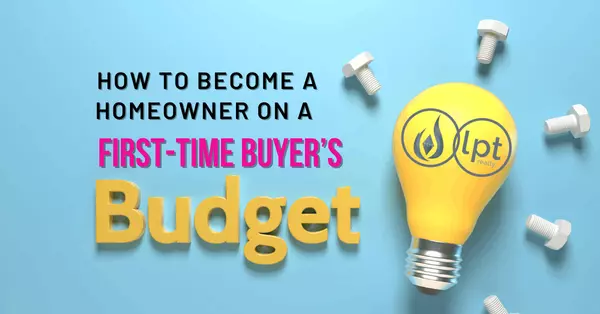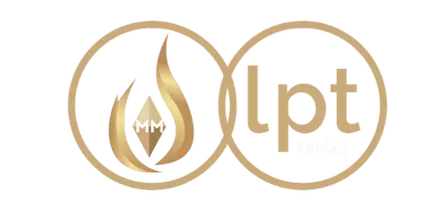Preparing for Your Purchase-a Homebuyer’s Guide

 Moving can be stressful, but it doesn’t have to be! If you’re a first-time buyer facing rising rents, a solid fixed rate mortgage is a great incentive to prepare yourself for homeownership. And, if you’re a current homeowner but want to downsize, move up, or invest in another property…it’s still vitally important to prepare for your purchase. No matter if it’s your 1st or your 5th home, don’t wait until you’re ready to move to start preparing financially to buy a home.
Moving can be stressful, but it doesn’t have to be! If you’re a first-time buyer facing rising rents, a solid fixed rate mortgage is a great incentive to prepare yourself for homeownership. And, if you’re a current homeowner but want to downsize, move up, or invest in another property…it’s still vitally important to prepare for your purchase. No matter if it’s your 1st or your 5th home, don’t wait until you’re ready to move to start preparing financially to buy a home.
The vast majority of home buyers finance their purchases with a mortgage loan. Knowing what to expect and taking the necessary steps to prepare will help you avoid any hiccups or delays to your new house. The requirements to secure a home loan can seem overwhelming, especially if you’re a first-time buyer, but at The Home Team Group, we like to educate our buyers to make the process smooth and pleasant. Purchasing a home is a big deal, and you worked hard to get here, so with open lines of communication and setting the expectation upfront, the financing part of buying a house can be ALMOST as fun as looking at the pretty houses (almost).
You may have seen Manny and I compare the current 2022 Housing Market to the 2008 Market in our recent episode of Married To The Market; but if you have had the opportunity to watch, one of the biggest items to note, especially if you’re a current homeowner who hasn’t purchased in a long time, is that lending requirements have become more rigorous in recent years, and changes to your credit history, debt levels, job type and other factors could impact your chances of approval. That’s why preparation is KEY.
It’s never too early to start preparing to buy a home. Follow these three steps to begin laying the foundation for your future home purchase today!
STEP 1 IN PREPARING FOR PURCHASE: CHECK YOUR CREDIT SCORE
Your credit score is one of the first things a lender will check to see if you qualify for a loan. It’s a good idea to review your credit report and score yourself before you’re ready to apply for a mortgage. Credit Karma is not a qualifying score for a mortgage approval, as it uses a Vantage Scoring method. So, while it is a great way to monitor your credit, to see what your true FICO score is, you can either CONTACT YOUR FAVORITE LENDER BY CLICKING HERE or call 833.WE.LOAN.1 and speak with one of our knowledgeable mortgage experts within our lending division of YOUR Home Team Group…Home Team Lending. Even the savviest of buyers cringe at the thought of a credit pull, but honestly, it’s such a small “hit” to your score (typically 2-5 points) and you really do need to know if you have a low score, because you will need time to raise it. And sometimes fraudulent activity or erroneous information will appear on your report, which can take months to correct.
If you are considering a purchase within the next 12 months, you should definitely give our team a call/text/email/pop by in person…because knowledge is really powerful in your pathway to purchase, so step one-knowing your credit-is something we can assist you with. It’s fast, FREE, and most of all, friendly. Believe me, after 20 years, there’s not a scenario that we haven’t seen. You’re in good hands with YOUR Home Team.
If you think you’re more than 12 months away, check out the free credit report that you are entitled to by federal law every 12 months from each of the three major credit bureaus (Equifax, Experian and Transunion) by requesting your free credit report at https://www.annualcreditreport.com.
5 Quick Tips to Increase Your Credit Score
While I’m not a credit expert, having helped grow our lending division as The Mortgage Mama™ the past decade, I have worked with hundreds of borrowers who have had credit challenges. And, y’all, there’s no quick fix for a low credit score, but the following 5 steps will help you increase it over time.5
1. Make Payments on Time
At 35 percent, your payment history accounts for the largest portion of your credit score. Therefore, it’s crucial to get caught up on any late payments and make all of your future payments on time.
2. Avoid Applying for New Credit You Don’t Need
New accounts will lower your average account age, which could negatively impact your length of credit history. Also, each time you apply for credit, it can result in a small decrease in your credit score.
The exception to this rule? If you don’t have any credit cards—or any credit accounts at all—you should open an account to establish a credit history. Just be sure to use it responsibly and pay it off in full each month.
3. Pay Down Credit Cards, Not Pay OFF
When you pay off your credit cards and other revolving credit, you lower your amounts owed, or credit utilization ratio (ratio of account balances to credit limits). Some experts recommend starting with your highest-interest debt and paying it off first. Others suggest paying off your lowest balance first and then rolling that payment into your next-lowest balance to create momentum.
Whichever method you choose, the first step is to make a list of all of your credit card balances and then start tackling them one by one; ideally at a $0 balance, but certainly if you do keep a balance, be sure to keep it under 30% of the available limit. Make the minimum payments on all of your cards except one. Pay as much as possible on that card until it’s paid in full, then cross it off your list and move on to the next card.
|
Debt |
Interest Rate |
Total Payoff |
Minimum Payment |
|
Credit Card 1 |
12.5% |
$460 |
$18.40 |
|
Credit Card 2 |
18.9% |
$1,012 |
$40.48 |
|
Credit Card 3 |
3.11% |
$6,300 |
$252 |
Keep the account open, but at a $0 balance, though. Here’s why:
4. Avoid Closing Old Accounts
Closing an account with a $0 balance eliminates that amount of available credit in your credit utilization ratio and the credit algorithm reads that as a bad thing, even though you got rid of debt. Since credit scores are measured by an algorithm and not a human, closing accounts raise your credit utilization ratio, since you’ll have less available credit. The credit algorithm also LOVES length of credit worthiness, so closing an old account will not remove it from your credit report and it can hurt your score as well because it decreases your average length of credit history.
Ooh, while I’m thinking about paying off things…in terms of collections, paying off a collection account will not remove it from your report. It remains on your credit report for seven years, however, the negative impact on your score will decrease over time.
5. Correct Errors on Your Report
Mistakes or fraudulent activity can negatively impact your credit score. That’s why it’s a good idea to check your credit report at least once per year. The Federal Trade Commission has instructions on their website for disputing errors on your report.
While it may seem like a lot of effort to raise your credit score, your hard work will pay off in the long run. Not only will it help you qualify for a mortgage, a high credit score can help you secure a lower interest rate on car loans and credit cards, as well. You may even qualify for lower rates on insurance premiums.6
STEP 2 IN PREPARING FOR PURCHASE: SAVE UP FOR A DOWN PAYMENT & CLOSING COSTS
The next step in preparing for your home purchase is to save up for a down payment and closing costs.
Down Payment
When you purchase a home, you typically pay for a portion of it in cash (down payment) and take out a loan to cover the remaining balance (mortgage).
Many first-time buyers wonder: How much do I need to save for a down payment? The answer is … it depends.
Generally speaking, the higher your down payment, the more money you will save on interest and fees. For example, you will qualify for a lower interest rate and avoid paying for mortgage insurance if your down payment is at least 20 percent of the property’s purchase price. But what if you can’t afford to put down 20 percent?
On a conventional loan, you will be required to purchase private mortgage insurance (PMI) if your down payment is less than 20 percent. PMI is insurance that compensates your lender if you default on your loan.7 Conventional loans can have a 3% down payment, but typically for better terms, a minimum of 5% is a good down payment.
If a 5% down payment is still too high, an FHA-insured loan may be an option for you. Because FHA loans are guaranteed by the Federal Housing Administration, they only require a 3.5% down payment if your credit score is 580 or higher.7
The downside of getting an FHA loan? You’ll be required to pay an upfront mortgage insurance premium (MIP) of 1.75% of the total loan amount, as well as an annual MIP of between 0.80 and 1.05 percent of your loan balance on a 30-year note. There are also certain limitations on the types of loans and properties that qualify.10
There are a variety of other government-sponsored programs created to assist home buyers, as well. For example, veterans and current members of the Armed Forces may qualify for a VA-backed loan requiring a $0 down payment.7 I recommend you CONTACT YOUR FAVORITE LENDER BY CLICKING HERE or call 833.WE.LOAN.1 and speak with one of our knowledgeable mortgage experts if you have further questions.
Current Homeowners
If you’re a current homeowner, you may have equity in your home that you can use toward your down payment on a new home. We can help you estimate your expected return after you sell your current home and pay back your existing mortgage. Contact us for a free evaluation!
Closing Costs & Pre-Paid Items
Closing costs should also be factored into your savings plan. These may include loan origination fees, discount points, appraisal fees, title searches, title insurance, surveys and other fees associated with the purchase of your home. Closing costs vary but typically range between 2.5 to 6 percent of the purchase price.11
If you don’t have the funds to pay these outright at closing, you can often add them to your mortgage balance and pay them over time. However, this means you’ll have a higher monthly payment and pay more over the long term because you’ll pay interest on the fees.
STEP 3 IN PREPARING FOR PURCHASE: ESTIMATE YOUR HOME PURCHASING POWER
Once you have the required credit score, savings for a down payment and a list of all your outstanding debt obligations via your credit report, you can assess whether you are ready and able to purchase a home.
It’s important to have a sense of how much you can reasonably afford—and how much you’ll be able to borrow—to see if homeownership is within reach.
Your debt-to-income (DTI) ratio is one of the main factors mortgage companies use to determine how much they are willing to lend you, and it can help you gauge whether or not your home purchasing goals are realistic given your current financial situation.
Your DTI ratio is essentially a comparison of your housing expenses and other debt versus your income. There are two different DTI ratios that lenders consider:
Front-End Ratio
Also called the housing ratio, this is the percentage of your income that would go toward housing expenses each month, including your mortgage payment, private mortgage insurance, property taxes, homeowner’s insurance and association dues.12
To calculate your front-end DTI ratio, a lender will add up your expected housing expenses and divide it by your gross monthly income (income before taxes).
Back-End Ratio
The back-end ratio takes into account all of your monthly debt obligations: your expected housing expenses PLUS credit card bills, car payments, child support or alimony, student loans and any other debt that shows up on your credit report.12
To calculate your back-end ratio, a lender will tabulate your expected housing expenses and other monthly debt payments and divide it by your gross monthly income (income before taxes).
Home Affordability Calculator
To get a sense of how much home you can afford, visit the National Association of Realtors’ free Home Affordability Calculator at https://www.realtor.com/mortgage/tools/affordability-calculator.
This handy tool will help you determine your home purchasing power depending on your location, annual income, monthly debt and down payment. It also offers a monthly mortgage breakdown that projects what you would pay each month in principal and interest, property taxes, and home insurance.
The Home Affordability Calculator defaults to a back-end DTI ratio of 36 percent. If the monthly cost estimate at that ratio is significantly higher than what you’re currently paying for housing, you need to consider whether or not you can make up the difference each month in your budget. The allowable back-end DTI varies depending on loan program and borrower qualifications, so the best course of action is to CONTACT YOUR FAVORITE LENDER BY CLICKING HERE or call 833.WE.LOAN.1 and speak with one of our knowledgeable mortgage experts if you have further questions.
(Note 1: This tool only provides an estimate of your purchasing power. You will need to secure pre-approval from a mortgage lender to know your true mortgage approval amount and monthly payment projections.)
(Note 2: While we’d love to earn your mortgage business as well as your real estate business, many of our buyers do work with other lenders, so you are absolutely welcome to use whatever mortgage, title, or real estate professional you know, like, and trust.)
Can I Afford to Buy My Dream Home?
Once you have a sense of your purchasing power, it’s time to find out which neighborhoods and types of homes you can afford. The best way to determine this is to CONTACT YOUR FAVORITE REALTOR BY CLICKING HERE or text or #CallYourMama 855.4YO.MAMA and my team would be so happy to assist you. We help homeowners like you every day and can send you a comprehensive list of homes within your budget that meet your specific needs.
If there are homes within your price range and target neighborhoods that meet your criteria—congratulations! It’s time to begin your home search.
If not, you may need to continue saving up for a larger down payment … or adjust your search parameters to find homes that do fit within your budget. The great news is…we can help you determine the right course for you, no matter where you’re at in your path to purchase.
START LAYING YOUR FOUNDATION TODAY
It’s never too early to start preparing financially for a home purchase. These three steps will set you on the path toward homeownership … and a secure financial future!
And if you are ready to buy now but don’t have a perfect credit score or a big down payment, don’t get discouraged. There are resources and options available that might make it possible for you to buy a home sooner than you think. We can help. We’re YOUR Home Team.
Much Love,
Amanda aka The Marketing Mama
The above references an opinion and is for informational purposes only. It is not intended to be financial advice. Consult a financial professional for advice regarding your individual needs.
Sources:
- myFICO –
https://www.myfico.com/credit-education/credit-report-credit-score-articles/ - Bankrate –
https://www.bankrate.com/mortgages/what-is-a-good-credit-score-to-buy-a-house/ - Bankrate –
https://www.bankrate.com/finance/mortgages/7-crucial-facts-about-fha-loans-1.aspx - myFICO –
https://www.myfico.com/credit-education/improve-your-credit-score/ - The Balance –
https://www.thebalance.com/having-good-credit-score-960528 - Bankrate –
https://www.bankrate.com/mortgages/how-much-is-a-down-payment-on-a-house/ - Bankrate –
https://www.bankrate.com/finance/mortgages/the-basics-of-private-mortgage-insurance-pmi.aspx - Bankrate –
https://www.bankrate.com/finance/mortgages/removing-private-mortgage-insurance.aspx - The Balance –
https://www.thebalance.com/fha-home-loan-pitfalls-315673 - Investopedia –
https://www.investopedia.com/terms/c/closingcosts.asp - Bankrate –
https://www.bankrate.com/finance/mortgages/why-debt-to-income-matters-in-mortgages-1.aspx - The Lenders Network –
https://thelendersnetwork.com/fha-debt-to-income-ratio/
Recent Posts










